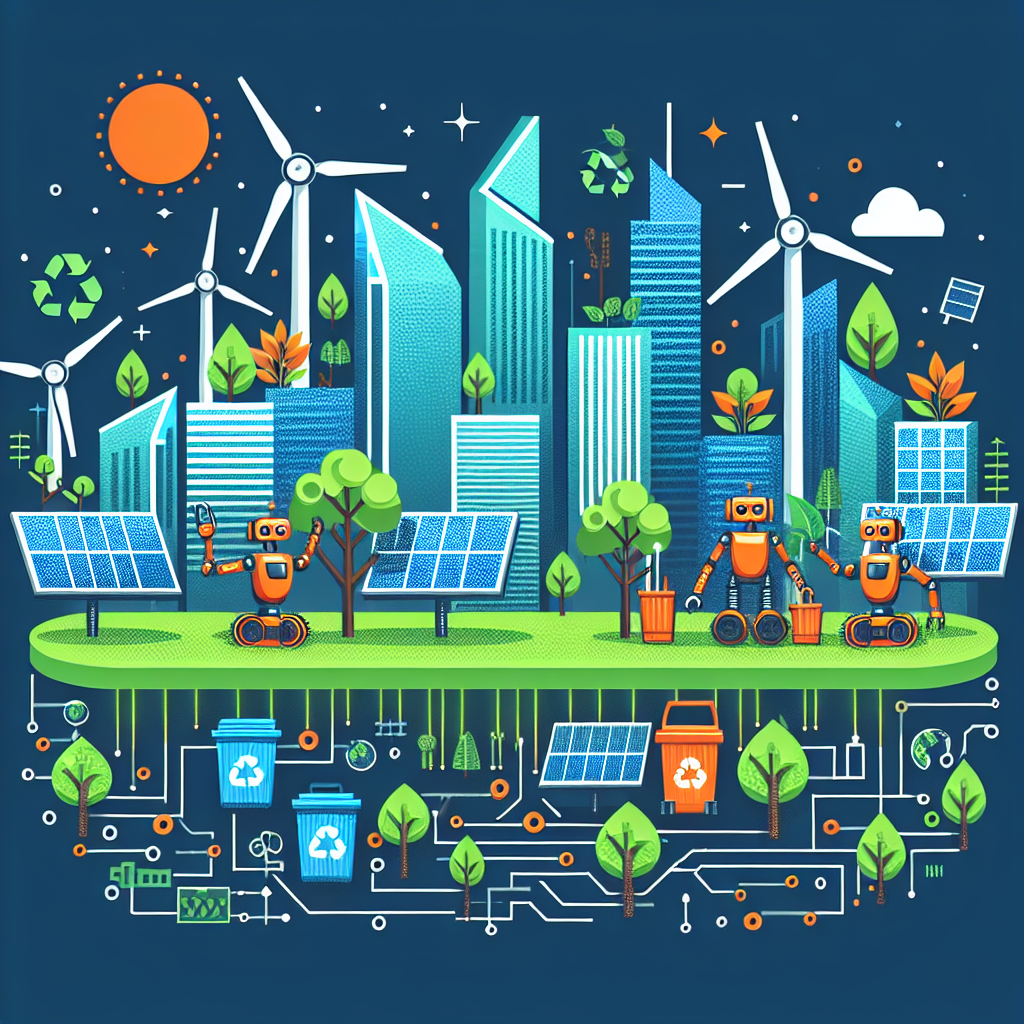Artificial Intelligence (AI) has the potential to revolutionize the way we approach sustainable development goals. From tackling climate change to improving healthcare access, AI has the power to drive progress in achieving a more sustainable future for all. In this article, we will explore the role of AI in addressing the Sustainable Development Goals (SDGs) and how it can help us overcome some of the world’s most pressing challenges.
AI for Sustainable Development Goals
The United Nations has set 17 Sustainable Development Goals to address global challenges such as poverty, inequality, climate change, and environmental degradation. AI can play a crucial role in achieving these goals by providing innovative solutions and driving efficiency in various sectors. Here are some ways AI can contribute to sustainable development:
1. Climate Change: AI can help in monitoring and predicting climate patterns, optimizing energy consumption, and developing sustainable solutions for industries. For example, AI-powered weather forecasting systems can provide accurate predictions to help communities prepare for natural disasters and mitigate their impact. AI can also optimize energy usage in buildings and factories, reducing carbon emissions and promoting sustainability.
2. Healthcare: AI can improve healthcare access and quality by enabling early disease detection, personalized treatment plans, and remote monitoring. AI-powered diagnostic tools can analyze medical images and patient data to identify health risks and recommend appropriate interventions. Telemedicine platforms powered by AI can connect patients with healthcare providers in remote areas, improving access to medical services and reducing disparities in healthcare delivery.
3. Agriculture: AI can boost agricultural productivity and food security by optimizing crop yields, monitoring soil health, and predicting pest outbreaks. AI-powered drones and sensors can collect data on crop conditions and environmental factors, enabling farmers to make data-driven decisions to enhance their yields. AI can also help in developing sustainable farming practices that conserve resources and promote biodiversity.
4. Education: AI can enhance learning experiences and improve educational outcomes by personalizing instruction, providing adaptive learning tools, and facilitating remote education. AI-powered tutoring systems can assess students’ learning needs and tailor educational materials to their individual pace and preferences. Virtual reality and augmented reality technologies powered by AI can create immersive learning environments that engage students and enhance their understanding of complex concepts.
5. Urban Planning: AI can optimize urban infrastructure and transportation systems to reduce congestion, pollution, and energy consumption. AI-powered traffic management systems can analyze real-time data to optimize traffic flow and reduce emissions from vehicles. AI can also help in designing sustainable urban spaces that promote walkability, cycling, and public transportation, reducing reliance on cars and improving air quality.
Challenges and Opportunities
While AI holds great promise for achieving sustainable development goals, there are also challenges that need to be addressed to maximize its potential. One of the key challenges is the ethical and social implications of AI, including issues related to privacy, bias, and transparency. It is important to ensure that AI systems are developed and deployed in a responsible manner, with safeguards in place to protect the rights and interests of all stakeholders.
Another challenge is the digital divide, which can hinder the adoption of AI solutions in developing countries and marginalized communities. To address this challenge, it is essential to promote digital literacy, build infrastructure for connectivity, and provide training and support for using AI technologies effectively. Collaboration between governments, businesses, and civil society is crucial to ensure that AI benefits are shared equitably across all sectors of society.
Despite these challenges, AI presents numerous opportunities for advancing sustainable development goals and creating a more inclusive and prosperous future for all. By harnessing the power of AI to address global challenges, we can accelerate progress towards achieving the SDGs and build a more sustainable and resilient world for future generations.
FAQs
Q: What are some examples of AI technologies being used to achieve sustainable development goals?
A: Some examples of AI technologies being used to achieve sustainable development goals include AI-powered weather forecasting systems, diagnostic tools for healthcare, drones and sensors for agriculture, tutoring systems for education, and traffic management systems for urban planning.
Q: How can AI help in addressing climate change?
A: AI can help in monitoring and predicting climate patterns, optimizing energy consumption, and developing sustainable solutions for industries. AI-powered weather forecasting systems can provide accurate predictions to help communities prepare for natural disasters and mitigate their impact. AI can also optimize energy usage in buildings and factories, reducing carbon emissions and promoting sustainability.
Q: What are some of the challenges of using AI for sustainable development?
A: Some of the challenges of using AI for sustainable development include ethical and social implications, digital divide, bias in AI algorithms, and lack of regulatory frameworks. It is important to address these challenges to ensure that AI benefits are shared equitably and responsibly.
Q: How can governments, businesses, and civil society collaborate to maximize the benefits of AI for sustainable development?
A: Governments, businesses, and civil society can collaborate by promoting digital literacy, building infrastructure for connectivity, providing training and support for using AI technologies effectively, and developing regulatory frameworks to ensure responsible deployment of AI solutions. Collaboration is key to maximizing the benefits of AI for sustainable development goals.

